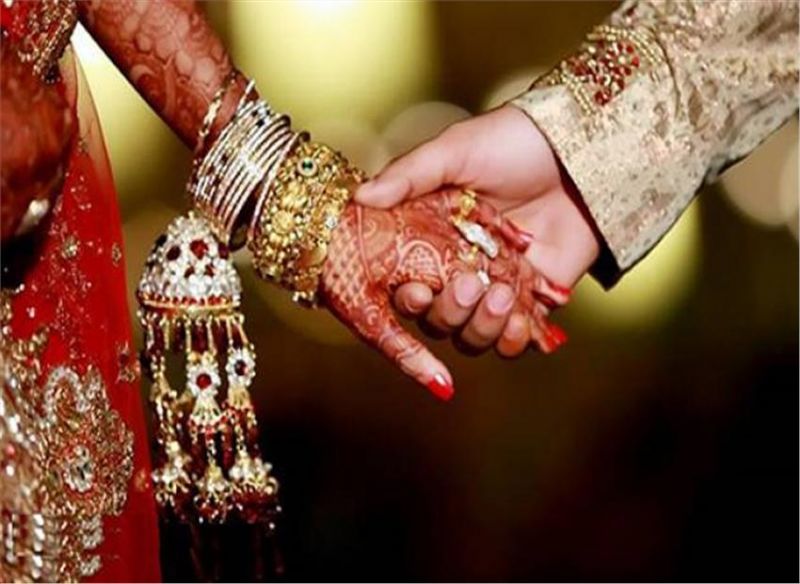
In the diverse tapestry of human cultures around the world, countless traditions and practices flourish, reflecting the unique beliefs and values of different communities. Among these myriad traditions, some can seem perplexing or even shocking to outsiders. One such tradition exists within the Mandi tribe of Bangladesh, where a peculiar practice known as "father-daughter marriage" has persisted for generations. This tradition raises questions about cultural relativism and the balance between preserving cultural heritage and confronting harmful practices. This article explores the Mandi tribe's unusual custom, shedding light on its origins, significance, and contemporary relevance.
The Mandi Tribe: A Unique Culture
The Mandi tribe is one of the many indigenous communities residing in the remote regions of Bangladesh. They have a distinct cultural identity characterized by their language, customs, and social structures. Like many tribal societies, the Mandi people have their own set of traditions and practices that have been passed down through generations. One such tradition, the father-daughter marriage, has drawn attention for its unconventional nature.
Understanding Father-Daughter Marriage
Father-daughter marriage, as practiced by the Mandi tribe, involves a father marrying his own daughter under specific circumstances. This practice is deeply rooted in the tribe's cultural beliefs and social dynamics. It is important to note that this tradition does not involve a biological father marrying his biological daughter. Instead, it revolves around a stepfather marrying his stepdaughter.
The process unfolds as follows:
Widowhood: When a woman becomes a widow at a young age and has a daughter from her previous marriage, she may decide to remarry. This decision often comes from a desire for companionship and support.
Conditional Marriage: The woman enters into a marriage with a man, referred to as the stepfather, under a unique condition. This condition stipulates that the stepfather must, at a later stage, marry the woman's daughter from her previous marriage.
The Daughter's Role: The daughter, who is initially raised to view the stepfather as her paternal figure, eventually marries him when she reaches an appropriate age.
Role Transformation: The stepfather, who initially served as a guardian and support figure, transitions into the role of a husband to the daughter. This includes the possibility of developing a physical relationship.
Cultural Significance and Rationale
The father-daughter marriage tradition among the Mandi tribe is not born out of perversion or malevolent intent. Instead, it is rooted in cultural beliefs and a desire to ensure the well-being of widowed women and their daughters. Several factors contribute to the cultural significance and rationale behind this practice:
Protection and Support: The tradition is seen as a way to provide protection and support to widowed women who might otherwise face challenges in a patriarchal society. By marrying a stepfather, these women gain a partner who can help them navigate life's difficulties.
Preserving Lineage: In many tribal societies, lineage and family ties are of paramount importance. Father-daughter marriage helps preserve the family lineage and ensures the daughter's welfare.
Cultural Norms: Within the Mandi tribe, this practice is considered a cultural norm and is accepted by the community. It aligns with their understanding of family, marriage, and social structure.
Challenges and Controversies
While the father-daughter marriage tradition has deep cultural roots and is practiced with a sense of cultural legitimacy within the Mandi tribe, it is not without its challenges and controversies. From an external perspective, this tradition can raise ethical concerns and issues related to consent, coercion, and gender inequality:
Consent: Critics argue that the daughters involved in these marriages may not have genuine agency or consent, as they are raised to view their stepfathers as paternal figures before marrying them.
Coercion: The power dynamics within these relationships can be skewed, with stepfathers having significant influence over their stepdaughters from a young age.
Gender Inequality: The tradition may perpetuate gender inequality by placing women in dependent positions, relying on male guardianship and support.
Legal Implications: Father-daughter marriages may conflict with national and international laws that prohibit incestuous relationships, even when there is no biological connection.
Contemporary Relevance and Changing Dynamics
In recent years, there has been a gradual decline in the practice of father-daughter marriages within the Mandi tribe. Modernization, increased access to education, and exposure to external influences have contributed to changing dynamics within the community. As younger generations question and challenge traditional norms, there is hope for a shift away from this practice.
Efforts to Address the Tradition
Non-governmental organizations (NGOs) and government agencies in Bangladesh have recognized the need to address the father-daughter marriage tradition. They work to raise awareness about the potential harms associated with this practice and provide support to widowed women and their daughters in alternative ways. These efforts include:
Education: Promoting education, especially for girls, can empower them to make informed choices about their lives and relationships.
Legal Reforms: Advocacy for legal reforms that protect the rights and well-being of women and children is an important step in addressing harmful traditions.
Community Engagement: Engaging with the Mandi tribe and other indigenous communities to foster dialogue and encourage discussions about cultural practices and their implications.
The father-daughter marriage tradition among the Mandi tribe of Bangladesh offers a complex and thought-provoking glimpse into the intersection of culture, tradition, and human rights. While this practice is deeply rooted in cultural beliefs and has served specific purposes within the community, it also raises ethical concerns and challenges related to consent and gender equality.
As Bangladesh continues to evolve and modernize, there is hope that harmful traditions like father-daughter marriage will gradually fade away. Efforts to promote education, legal reforms, and community engagement are essential in addressing these practices while respecting the cultural diversity that enriches our world. Ultimately, the conversation around such traditions underscores the importance of striking a balance between preserving cultural heritage and safeguarding the rights and well-being of individuals within these cultures.
High Blood Pressure: 3 Crucial Indian Spices for Lowering BP Naturally